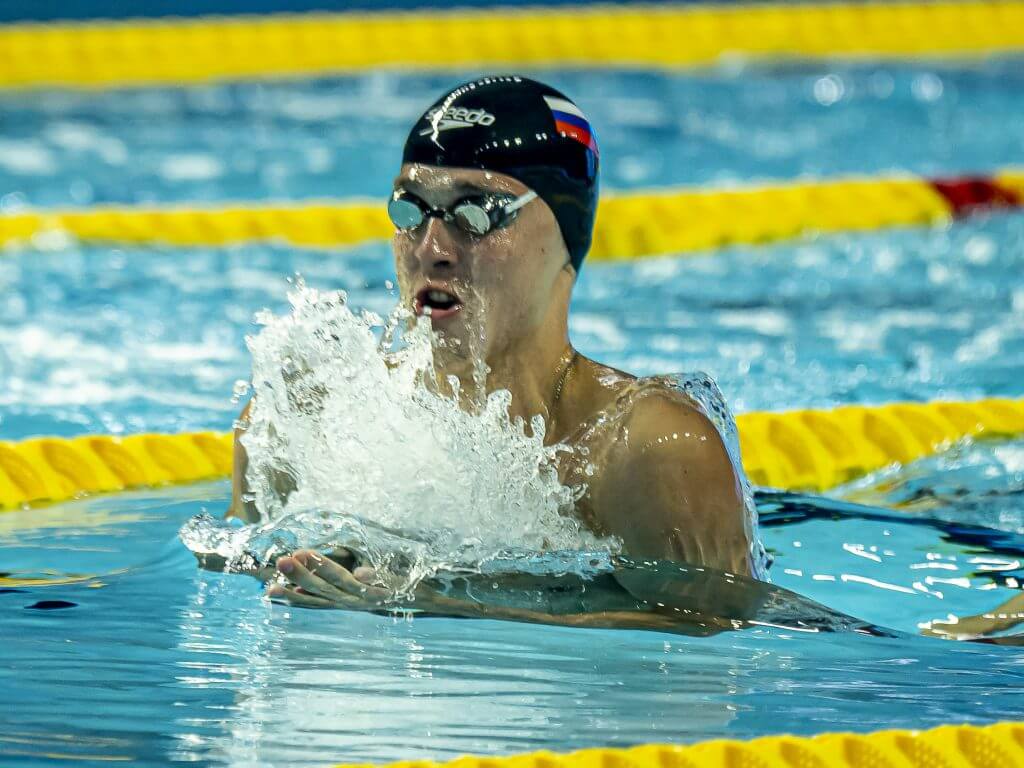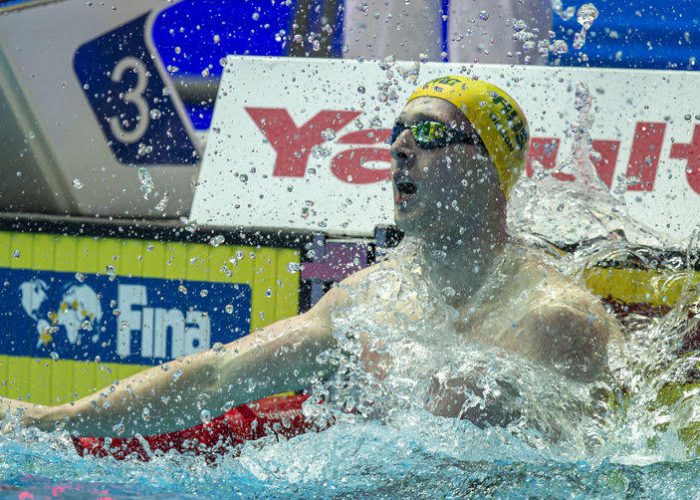Tokyo Vision: Anton Chupkov Aiming to Back World Titles With Olympic Gold in 200 Breast

Tokyo Vision: Anton Chupkov Aiming to Back World Titles With Olympic Gold in 200 Breast
Had the COVID-19 pandemic not shaken the world, the 2020 Olympic Games in Tokyo would be unfolding right now, titles and podium finishes earned by the finest athletes from around the world. Instead, we are in a competition lull and hopeful that the Games will be held next summer, with COVID-19 neutralized.
As we reach the nine days over which the swimming competition of a delayed Olympiad would have taken place, Swimming World is taking a glimpse at what might have unfolded this summer, had the Olympics not been postponed. Following the official schedule, we offer our virtual fields of eight finalists for each event and take a brief look at how the racing might have panned out until a few strokes away from decision and a result that will not be known until July/August 2021.
League of Olympic Legends: Mike Barrowman Tops 200 Breaststroke Podium with Kitajima and Wilkie
Event: Men’s 200 Breaststroke
World Record: Anton Chupkov, RUS (2019) – 2:06.12
Historical Note #1: This event has been contested at every Olympic Games since 1908 when Britain’s Frederick Holman won the inaugural gold medal in London with a 3:09.2. He led a 1-2 finish with countryman William Robinson.
Historical Note #2: There have been two men that have won back to back gold medals in this event, and both hail from Japan. Yoshiyuki Tsuruta won golds in 1928 (2:48.8) & 1932 (2:45.4) and Kosuke Kitajima won in 2004 (2:09.44) & 2008 (2:07.64).
Virtual Vision
The Finalists (Listed Alphabetically)
- Anton Chupkov, Russia
- Arno Kamminga, Netherlands
- Yasuhiro Koseki, Japan
- Will Licon, United States
- Zac Stubblety-Cook, Australia
- Ippei Watanabe, Japan
- James Wilby, Great Britain
- Matthew Wilson, Australia
The Race
The men’s 200 breaststroke final at the 2019 World Championships was the fastest field ever assembled, and ever since that day when Anton Chupkov of Russia and Matthew Wilson traded world records in Gwangju, the swimming world has been eagerly anticipating their rematch. Add in Japan’s Ippei Watanabe, who held the world record before both of them, and upstart Arno Kamminga of the Netherlands, and this is one of the can’t-miss races of the entire Tokyo event lineup.
Watanabe and Japan’s Yasuhiro Koseki will be boosted by the Tokyo crowd, as Japan’s rich history will come out to play in this final. The only two men to win back to back Olympic gold medals in this event hail from Japan and Kosuke Kitajima is in attendance to see if the crowd can sing Kimigayo at the end of the night.

Australia’s Matthew Wilson. Photo Courtesy: PATRICK B. KRAEMER
Wilson and Kamminga immediately dart to the lead. Although Wilson is a 200 specialist, he knows the only way he can beat Chupkov is to get as far away as possible. Kamminga, Koseki and Watanabe follow his lead. Chupkov is staying long and strong, and is within touch of the lead pack.
At the halfway point, Koseki is hearing it from the crowd as he turns in the lead just ahead of Wilson. Much like he did in Rio four years prior, Koseki is pushing the pace. Chupkov is at the back, but everyone in the venue knows he is not out of it.
On the third 50, Wilson, Kamminga and Watanabe are still going strong as Chupkov and American Will Licon begin to make their moves. As the eight men turn at the 150, nobody is out of it.
Chupkov slingshots himself even with the leaders and Australian Zac Stubblety-Cook turns it into another gear, as does Great Britain’s James Wilby. If Chupkov wins, he finishes off his fourth straight year as the fastest man in the world, adding to his world titles from 2017 & 2019, and his bronze he won in Rio 2016. Russia hasn’t won a gold in this event since Soviet Robertas Zulpa won in Moscow 1980.
If Wilson or Stubblety-Cook wins, it would be Australia’s first gold medal in the event since Ian O’Brien in 1964, and the country’s first medal since Brenton Rickard’s silver in 2008. If Kamminga wins, it would be the end of an incredible 12-month run as he has emerged as a late bloomer at age 24. If Watanabe or Koseki prevails, the decibel level will reach a potential maximum at the Tokyo Aquatic Center, as cameras catch Kitajima shedding a tear in the stands.



